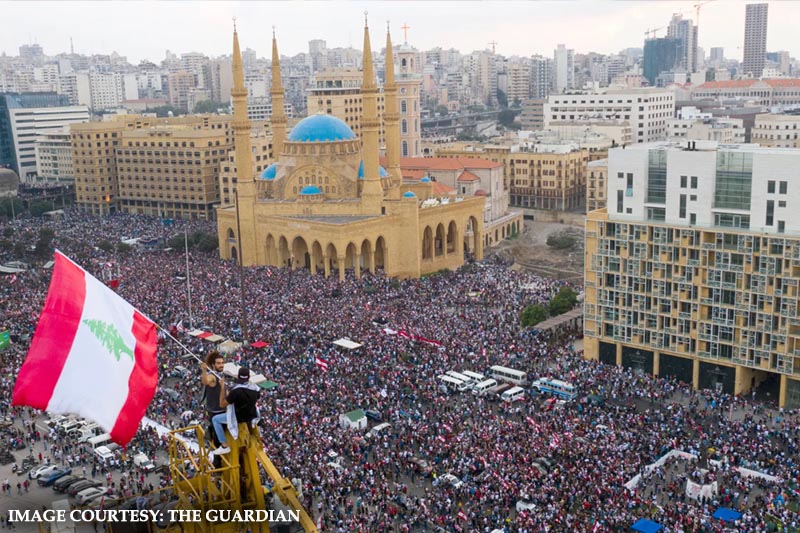Demonstrators in Lebanon took to the streets on the fifth day of anti-government protest. The mass protest is against the debilitating economy and weak government.
The mass protest in Lebanon continued on the fifth day as demonstrators registered their anguish against the looming economic collapse. Significantly, the protests started against the government’s decision to introduce a $6 per month levy on the messaging application WhatsApp.
All of a sudden, the protest took a violent turn as angry protestors ransacked high-end shops in Beirut. Further, the violent protests also left one person dead in the northern city of Tripoli.
Since then, the protests have settled into large peaceful gatherings that have crossed sectarian and social lines and continued to grow in size and energy as Lebanese leaders struggled to formulate a response.
While the government hastily scrapped the taxes, the protests have morphed into a demand for wider economic reforms.
Lebanon has not witnessed mass protests of this kind since the so-called Cedar revolution of 2005. Following the Cedar revolution of 2005, Syrian forces left the country after 15 years of involvement in the neighbour’s affairs.
On the negative side, the reason behind the failing economy of Lebanon is rampant corruption and nepotism. Interestingly, Lebanon’s economy has reached a dangerous situation due to low growth and high debt.
While Lebanon’s national debt is 150% of GDP and rising, central bank reserves have plummeted 30% in the past year. On the other hand, the local currency has slipped against the dollar in recent months.
On Friday, Lebanon’s Prime Minister Saad Hariri asked his coalition partners to come up with economic reforms in the next 72 hours. As per reports, an agreement was finalized on Sunday; privatization of key utilities and reducing the salary of politicians are part of the agreement. A cabinet meeting will approve the agreement on Monday.









